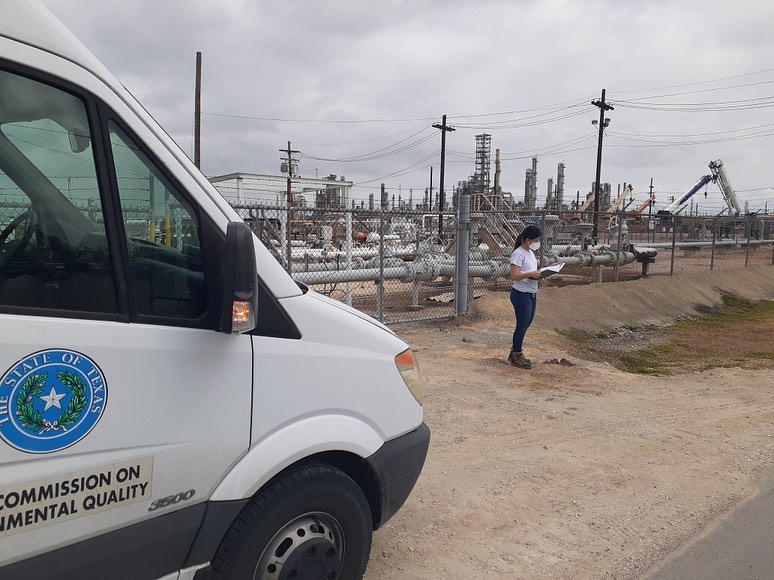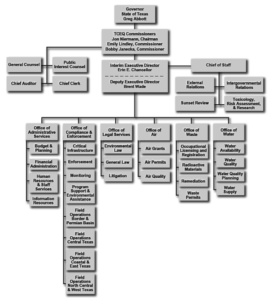Article Contents Show
Overview
The Texas Commission on Environmental Quality (TCEQ) regulates water quality, air quality, and waste management in the State of Texas.
The agency employs a staff of about 2,800, most of whom are professionals trained in science, technology, engineering, computer science, or related fields.
TCEQ maintains a central office in Austin and 16 regional offices around Texas.
Regulatory Programs
- Office of Compliance and Enforcement: Enforces compliance with state environmental laws, responds to emergencies and natural disasters, oversees dam safety, and monitors air quality within Texas.
- Office of Air: Offers grants in an effort to reduce air pollution; oversees air permitting activities; runs initiatives with local and federal partners; and tracks progress toward environmental goals.
- Office of Waste: Regulates trash dumps, industrial waste, low-level radioactive waste, and underground storage tanks; oversees the cleanup of contaminated sites; sets training requirements for licenses for various professions, such as underground storage tank contractors and wastewater operators.
- Office of Water: Monitors public drinking water, groundwater protection, wastewater and storm water, and animal feeding operation permitting.
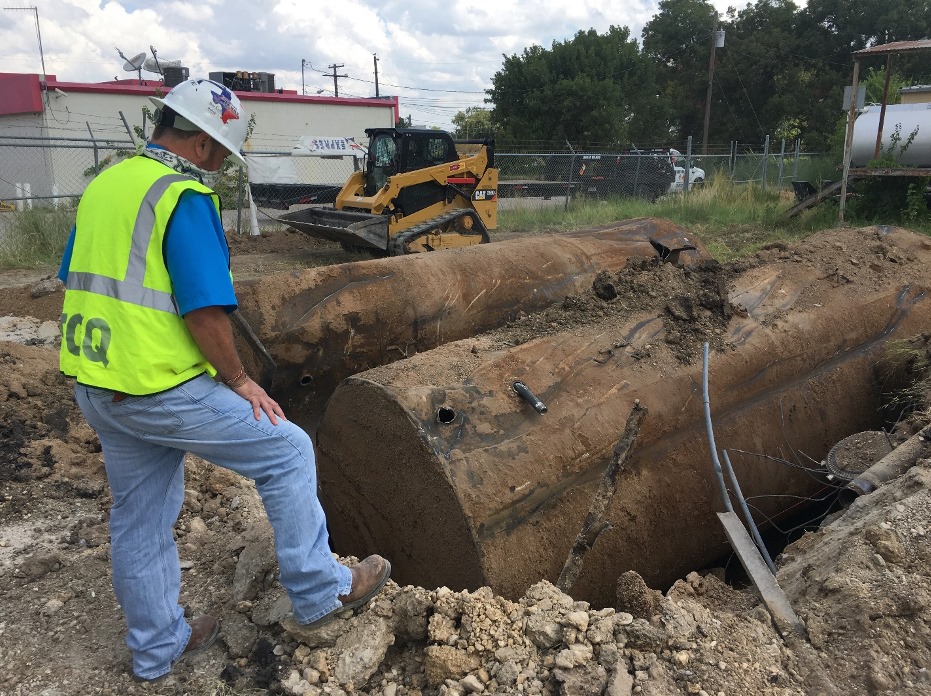
Funding
TCEQ has an annual budget of $483 million (FY 2023), including $249 million in revenue from program fees, $38 million from the federal government, and $16 million from the state’s general revenue fund.
A key sources of revenue is the Texas Emissions Reduction Plan, which includes five fees and surcharges assessed on the sale, registration and inspection of vehicles, as well as a surcharge on the rental or purchase of diesel equipment in the state.
Additional fees include the Petroleum-Product Delivery Fee, Air Emissions Fee, Solid-Waste Disposal Fee, Motor-Vehicle Safety-Inspection Fee, Consolidated Water Quality Fee, and Lead Acid Battery Fee.
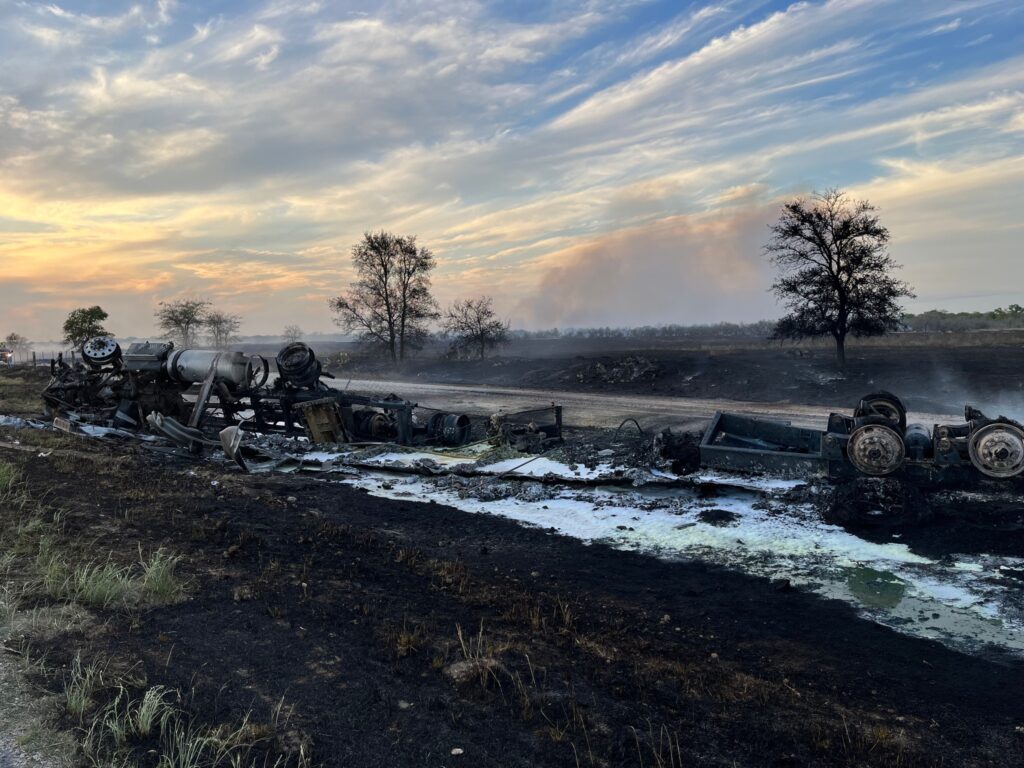
Governance

TCEQ is governed by a three-member board of full-time commissioners appointed by the governor. They are responsible for the overall direction and policy of the agency. They also make final decisions on contested permitting and enforcement matters.
The commissioners are appointed for six-year terms with the advice and consent of the Texas Senate. A commissioner may not serve more than two six-year terms, and the terms are staggered so that a different member’s term expires every two years.
History of the Agency
The Texas Commission on Environmental Quality (TCEQ) traces its origins to early 20th-century initiatives aimed at managing the state’s natural resources, particularly water. As concerns over water rights and conservation grew, Texas established various programs to address these issues. The focus during this time was on managing the state’s vast water resources to support its agricultural and economic growth, laying the foundation for future environmental management efforts.
As the country entered the mid-20th century, national attention shifted toward broader environmental concerns, including air quality. Texas expanded state-level programs aimed at limiting air pollution and regulating the handling and disposal of hazardous waste.
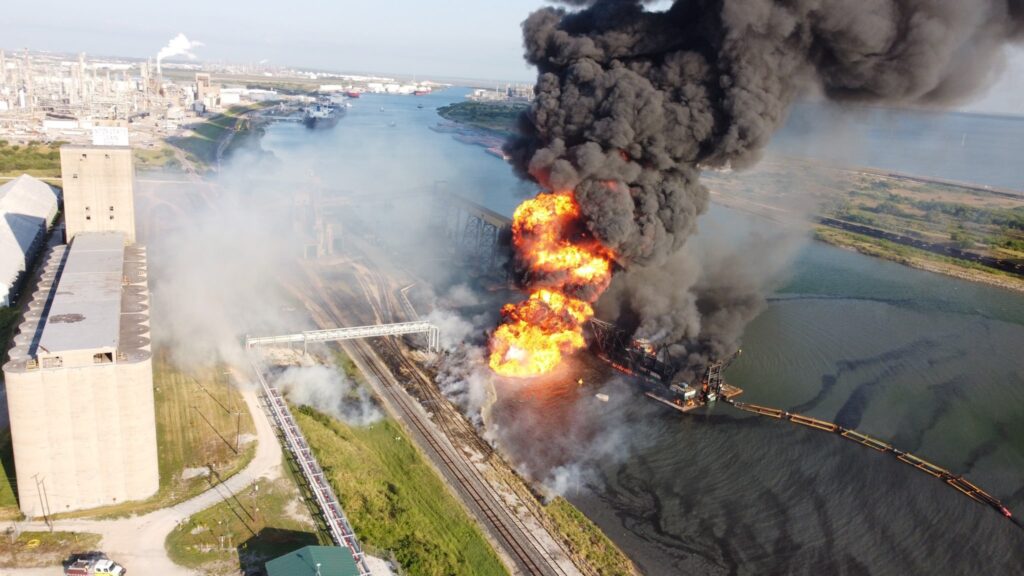
By the 1990s, the Texas Legislature began to recognize the need for a more streamlined approach to environmental management. Various natural-resource programs and regulatory functions had developed across multiple state agencies, leading to inefficiencies and fragmented enforcement. The Legislature moved to consolidate these programs. In 1993, the Texas Natural Resource Conservation Commission (TNRCC) was established, combining existing programs related to air, water, and waste management under a single agency.
Another restructuring and rebranding took place in 2001 when the Legislature passed a Sunset bill changing the agency’s name to the Texas Commission on Environmental Quality. The renaming reflected a broader focus on the overall quality of the environment rather than simply the conservation of natural resources.
